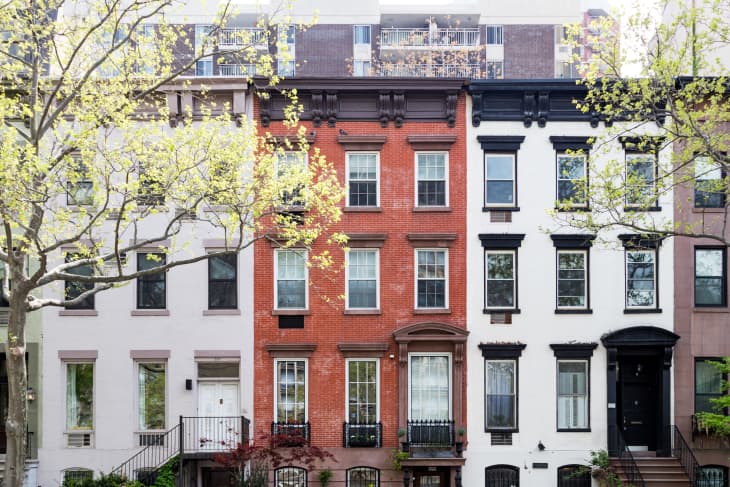We Asked 5 Real Estate Pros How to Tell If Your Rent Is Affordable — and Here’s the Truth

“How much rent can I afford?” It’s a question you’ve probably asked yourself (or out loud) while contemplating whether you should splurge on a sunny (but expensive) apartment that checks all the boxes on your must-have list.
The widely accepted rule of thumb is that you should never spend more than 30% of your monthly income on rent. But that advice is just a guideline, not a rule, especially in today’s expensive rental market. “Rents have certainly risen over the last few years, while wages have not necessarily kept pace,” says John Walkup, co-founder of UrbanDigs, a real estate data analytics company. This is definitely something to consider when calculating your future rent.
In reality, there’s no one-size-fits-all approach to determining how much rent you can afford; it all boils down to your situation and preferences. Some renters might have student loans to worry about, while others are debt-free. Some people might be OK pinching pennies elsewhere to spend more of their budget on rent, while others may take a more conservative approach. Some established professionals might have a big promotion on the horizon, while others are just getting a foot in the door at work.
So, how do you know how much you can really afford to pay for rent each month? I chatted with personal finance and real estate experts to find out — here’s what they had to say.
Make a Budget First
First things first: You need to know how much money you’ve got coming in and how much you’ve got going out — also known as making a budget.
“When determining how much rent you can afford, it’s crucial to start by assessing your budget and financial situation,” says Brandon Snow, executive director of mortgage strategy at Ally Home. Sit down one afternoon when you don’t have anywhere to be, eat a snack, and take a long, hard look at your credit card statements, bank accounts, paystubs, and any other financial documents.
Divide your expenses into two categories: “necessary” (for things like groceries and car payments) and “discretionary” (for things like streaming services and takeout), says real estate broker Andrea Saturno-Sanjana. As you sort through your income, be sure to consider which sources are guaranteed and which are not, like your salary versus a year-end bonus. And don’t forget to budget some money to set aside for emergencies, also known as a “rainy day” fund.
You may initially dread undertaking this process but, at the end, you’ll be intimately familiar — and more comfortable — with your own financial situation. (And you may even surprise yourself by realizing you can ditch a few of the expenses in your “discretionary” pile to save some money, thus freeing up more of your budget for rent.)
Once you’ve gone through this exercise, you can turn to an online rent affordability calculator to help figure out your rent budget. Play around with the numbers and see what feels realistic, based on your spending habits.
Figure Out Your Priorities
From here, you can start looking for apartments within your price range — but the budget-based search may not be as straightforward as you think. Depending on your priorities, paying more for rent may actually help you save money in other areas.
For example: If you work out every day, can you pay a little more for a building with a fitness center and cancel your gym membership? You’ll need to do the math, but it may be worth considering.
The same might be true for a slightly more expensive apartment that’s closer to work and allows you to cut down on commuting or parking costs, says Crystal Chen, a spokeswoman for the rental marketplace Zumper. “Some renters willingly pay more to live in an amenity-rich community that’ll help them save on extras,” she says.
Don’t Forget Utilities and Moving Costs
Also, remember that rent is just one of your living expenses. Unless utilities are included in the monthly rent, you’ll also need to account for them, too. (No, they’re not technically “rent,” but you should still keep them top of mind when you’re deciding what you can afford.)
“Are you a fan of blasting cold air conditioning when it’s July and sticky outside?” says Walkup. “If so, you may want to pad your monthly budget to accommodate that.”
Along those same lines, don’t forget about other moving costs, like rental application fees and security deposits, which can really add up, says Chen. Depending on the unit and the location, you may also need to pay for renters insurance or a broker’s fee. “It’s worth considering the full cost of moving before committing to a new apartment,” she adds.
Try to Negotiate
As you search for a new apartment, consider the listed rent price a starting point. You can — and should — negotiate with the landlord on rent or other factors, like lease length or a parking space. She may not budge, but you’ll never know unless you ask.
“It does not hurt to try,” says real estate agent Karen Kostiw. “Renters can ask if the landlord will cover certain management fees, for example, especially if you are amenable to a quick timeline so that the landlord can have their unit occupied quickly with a tenant.”